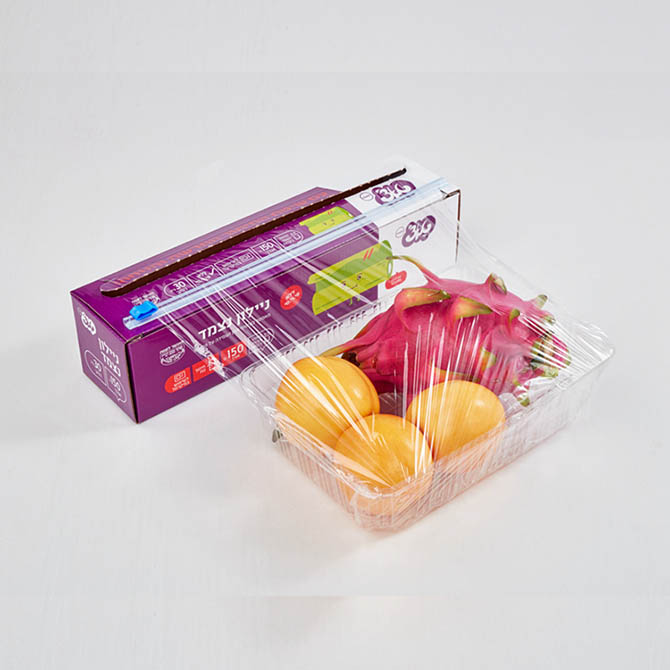We are committed to food packaging PVC cling film, PE cling film,stretch wrap, aluminum foil and other disposal food packing film/foil.

Language
>Polyethylene film is a versatile plastic film made from polyethylene (PE), a thermoplastic polymer widely used across packaging, industrial, and consumer applications. Produced in various forms such as low-density polyethylene (LDPE), linear low-density polyethylene (LLDPE), and high-density polyethylene (HDPE), this film is known for its flexibility, durability, and chemical resistance. As one of the most commonly used packaging materials, polyethylene film is valued for its lightweight structure, high tensile strength, and excellent barrier properties.
Key Features of Polyethylene Film
High Tensile Strength and Durability – Depending on thickness and polymer type, polyethylene film can achieve tensile strength ranging from 15–35 MPa, making it suitable for heavy-duty packaging and pallet wrapping.
Excellent Stretchability – LLDPE films, commonly used as Stretch Wrap Rolls, can stretch up to 300–400% of their original length without breaking, ensuring secure pallet loads and preventing shifting during transport.
Moisture and Chemical Resistance – Offers near-complete resistance to water, mild acids, and alkalis, making it ideal for food and industrial packaging.
Transparency and Printability – Polyethylene film provides clear visibility of packaged products and supports high-quality printing for branding purposes, maintaining color fastness above 80% after 50 rub cycles.
Lightweight and Cost-Effective – Its low density reduces transportation costs while maintaining performance, making it an economical choice for bulk packaging.
Environmental Adaptability – Many modern polyethylene films are designed to be recyclable or partially biodegradable, supporting sustainable packaging practices without sacrificing strength.
Applications of Polyethylene Film
Polyethylene film finds widespread use in multiple industries:
Food Packaging – Wrapping fresh produce, bakery items, frozen foods, and processed products to extend shelf life and prevent contamination.
Industrial Packaging – Used as stretch wrap rolls to secure pallets, protect goods from dust, moisture, and mechanical damage during shipping and storage.
Agricultural Films – Greenhouse covers, silage wrap, and mulch films to enhance crop growth and retain soil moisture.
Medical and Pharmaceutical – Sterile packaging and protective barriers for medical devices and pharmaceutical products.
Consumer Goods – Protective covers, shopping bags, shrink wraps, and household storage applications.
Custom Industrial Solutions – Polyethylene films can be tailored with anti-static, UV-resistant, or heat-sealable coatings for specialized industrial uses.
To ensure optimal performance, proper handling of polyethylene film is crucial:
Avoid Excessive Heat – Store away from direct sunlight and high temperatures to prevent deformation.
Keep Clean and Dry – Protect rolls from dust and moisture, which may reduce adhesion and clarity.
Handle with Care – Prevent punctures or tearing by keeping sharp objects away.
Proper Storage – Maintain rolls in their original packaging, horizontally or vertically, in a cool, ventilated area to prevent warping.
Partnering with experienced polyethylene film suppliers ensures consistent quality, adherence to international safety standards, and access to customization options such as thickness, width, color, surface coating, and print design. Reputable suppliers provide certifications like FDA, LFGB, or ISO, guaranteeing food-grade safety and industrial compliance. Working with trusted suppliers also allows for bulk purchasing, fast delivery, and technical support for specific packaging or production requirements.